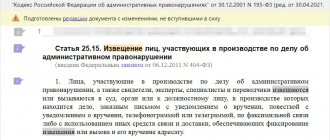General provisions on simplified (accelerated) procedures for considering cases
Creating the necessary conditions for the effective administration of justice and ensuring its accessibility is a priority of the ongoing judicial and legal reform. One of the legal mechanisms to alleviate the existing problems of judicial practice is the development of simplified (accelerated) proceedings.
Speeding up the progress of a case often requires simplifying certain procedures (without compromising the fundamental principles of civil procedure); simplification, as a rule, leads to speeding up the proceedings in court.
Currently, the Code of Civil Procedure of the Russian Federation distinguishes between writ proceedings, absentee proceedings and simplified proceedings. The newest is simplified manufacturing.
The Arbitration Procedure Code of the Russian Federation and the Caspian Arbitration Procedure Code of the Russian Federation do not know the institution of absentee proceedings, but they establish the peculiarities of considering cases in the simplified proceedings procedure.
Over the past few decades, simplified (accelerated) procedures for considering cases in civil and arbitration proceedings have developed independently of each other. The Code of Civil Procedure of the Russian Federation regulated the possibility of issuing a court order in certain categories of cases, and the Arbitration Procedure Code of the Russian Federation established the peculiarities of considering a number of cases in the simplified procedure. Practice has shown that both procedures turned out to be more or less effective.
Improving the quality of justice and the need to unify procedural legislation pose new tasks for scientists and legislators, aimed both at improving existing simplified (accelerated) procedures for considering certain categories of cases, and at creating new ones that meet the requirements of modern civil circulation.
In the science of civil proceedings, to this day there are different approaches to defining special (simplified, accelerated) procedures for the consideration and resolution of cases in comparison with the general procedure for claim proceedings.
In the literature, simplified procedures (forms of process) in civil proceedings include: proceedings in absentia, proceedings before a magistrate, writ of execution by a notary, etc.
In the arbitration process, such procedures include writ and summary proceedings.
It is proposed to include the following features of simplified (accelerated) procedures:
- significant shortening of the trial stage or its absence;
- the inappropriateness of using an extensive, classical trial procedure;
- exclusion of certain procedural actions;
- sufficiency or possibility of using a limited range of evidence in the case;
- special procedural consequences of the parties’ appearance (failure to appear).
In all cases, we are talking about simplifying the civil procedural form for certain categories of cases considered and resolved by the courts; however, the degree of simplification may vary.
The Code of Civil Procedure of the Russian Federation currently directly distinguishes: court order, absentee proceedings, simplified proceedings.
Sample objection
If the defendant or plaintiff is against consideration of the controversial situation in the process of summary proceedings, then he files an objection.
The document must indicate:
- name of the court
- Full name and place of residence of the plaintiff
- Full name and place of residence of the defendant
- details of the court case
- date of filing the statement of claim and list of requirements presented to the defendant
- reasons why, in the defendant’s opinion, the case cannot be considered summarily
- list of attached documents
Court order
In pre-revolutionary Russia, the institution of writ proceedings was enshrined in the Charter of Civil Proceedings of 1864. It was a combination of claim proceedings with the procedure for the forced execution of court decisions.
During the Soviet period from the late 20s. XX century the court order was not applied due to the strengthening of administrative principles in public life.
Once again, the chapter on the court order was included in the Code of Civil Procedure of the RSFSR in 1995. With the adoption of the new Code of Civil Procedure of the Russian Federation in 2002, this chapter was retained; At the same time, the mechanism for regulating summary proceedings has been improved.
A court order is a court decision that a judge makes alone on an application for the collection of sums of money or for the recovery of movable property from the debtor according to the requirements provided for in Art. 122 of the Code of Civil Procedure of the Russian Federation, without trial and without summoning the parties to hear their explanations.
In writ proceedings, certain categories of cases are considered and indisputable claims are resolved. Indisputability is the main feature of writ proceedings, distinguishing it from other proceedings.
At the same time, a “court order” is a legal proceeding. The court actively participates in it, exercising authority to initiate, develop proceedings and resolve stated claims.
In writ proceedings, not everything is performed, but only those procedural actions without which it is impossible to issue a court order.
Articles 121 and 122 of the Code of Civil Procedure of the Russian Federation establish the conditions for issuing a court order and the list of requirements for which it is issued. What they have in common is the following:
- are of an indisputable nature;
- aimed at collecting only sums of money or movable property with a value not exceeding 500 thousand rubles;
- must be confirmed by documents that do not raise doubts about their authenticity and reliability.
A court order can be issued if the claim is based on a notarized transaction.
Notarization of transactions in accordance with clause 2 of Art. 163 of the Civil Code of the Russian Federation is mandatory in the following cases:
- expressly specified in the law;
- provided for by the agreement of the parties, at least by law this form was not required for legal transactions. Failure to comply with the notarial form entails its invalidity.
The notarial form is provided for concluding the following transactions: on the transfer of debt (Articles 389, 391 of the Civil Code of the Russian Federation), on rent (Article 584 of the Civil Code of the Russian Federation), etc.
The Code of Civil Procedure of the Russian Federation provides for the issuance of a court order upon request based on a transaction completed in simple written form. In this case, the transaction must be presented to the judge in writing by drawing up a document expressing its contents, and also signed by a person (persons) or an authorized person (Article 160 of the Civil Code of the Russian Federation). Particular attention should be paid to the use of a facsimile reproduction of a signature or an analogue of a handwritten signature when making transactions. The acceptance of a document with such a signature must be stipulated either by agreement of the parties, or in the manner prescribed by law or other legal act.
For this requirement, it is necessary to take into account Art. 161 of the Civil Code of the Russian Federation, which specifies transactions that must be concluded in simple written form:
- transactions of legal entities among themselves and with citizens;
- transactions between citizens between themselves for an amount exceeding 10 thousand rubles, and in cases provided for by law - regardless of the amount of the transaction.
The issuance of a court order is also possible upon request based on a notary’s protest of the bill of exchange for non-payment, non-acceptance and undated acceptance.
A bill of exchange is one of the securities. If the bill becomes due for payment, the holder turns to the payer with a request to make the appropriate payment or accept payment. If the payer refuses to pay the payment in whole or in part, then this refusal is recorded in a protest drawn up by a notary.
The Code of Civil Procedure of the Russian Federation provides for the issuance of an order upon a request for the collection of alimony for minor children, if this requirement is not related to establishing paternity, challenging paternity (maternity), or the need to involve other interested parties. In other words, writ proceedings are possible only in the absence of a dispute between parents regarding the collection of alimony for their minor children.
The law establishes the possibility of collecting, by court order, accrued but not paid wages to an employee, vacation pay, dismissal payments and (or) other amounts accrued to the employee. The issue has been resolved similarly with regard to claims for the recovery of accrued but not paid monetary compensation for the employer’s violation of the established deadline for payment of wages, vacation pay, dismissal payments and (or) other payments due to the employee;
When going to court, you must provide documents confirming the existence of the employer's debt.
A court order is issued if a territorial body of the federal executive body responsible for ensuring the established procedure for the activities of courts and the execution of judicial acts and acts of other bodies makes a demand for the collection of expenses incurred in connection with the search for the defendant, or debtor, or child.
Massive violations of contractual discipline by citizens led to the establishment in the Code of Civil Procedure of the Russian Federation as a requirement for issuing a court order to pay arrears for living quarters and utilities, as well as telephone services.
In addition, a court order may be issued in response to demands for the collection of mandatory payments and contributions from members of a homeowners' association or building society.
All requirements listed in Art. 122 of the Code of Civil Procedure of the Russian Federation are exhaustive and are not subject to broad interpretation.
Part 1 art. 123 of the Code of Civil Procedure of the Russian Federation provides that an application for a court order is submitted to the court according to the general rules of jurisdiction established by procedural legislation. According to clause 1, part 1, art. 23 of the Code of Civil Procedure of the Russian Federation, cases of issuing a court order fall under the jurisdiction of the magistrate.
When issuing a court order, the following applies:
- general rules of territorial jurisdiction (Article 28 of the Code of Civil Procedure of the Russian Federation);
- alternative jurisdiction for claims for the collection of alimony for minor children (Article 29 of the Code of Civil Procedure of the Russian Federation);
- jurisdiction for connection of cases (Article 31 of the Code of Civil Procedure of the Russian Federation), if claims are presented to several debtors;
- contractual jurisdiction (Article 32 of the Code of Civil Procedure of the Russian Federation).
An application for a court order is paid with a state fee in the amount of 50% of the rate established for statements of claim.
An application for a court order must be submitted in writing. It must contain the information established by Art. 124 Code of Civil Procedure of the Russian Federation. Thus, the name of the court to which the application is submitted is indicated; name of the claimant, his place of residence (location); the claims of the claimant are clearly justified and the circumstances on which the claims are based are indicated; documents confirming the validity of the claimant's claim.
If the application contains a request to reclaim movable property, then the applicant is obliged to indicate the value of this property, confirming it with relevant documents. If there are discrepancies between the amount indicated by the claimant and the amount determined in the attached documents, this is considered as a dispute about the right and the application may be refused.
The application must be signed by the claimant or his representative who has the appropriate authority, formalized by a power of attorney.
A court order on the stated request is issued within five days from the date of receipt of the application for the issuance of a court order to the court (Article 126 of the Code of Civil Procedure of the Russian Federation).
The peculiarity of the court order is that the court does not consider the case on its merits, but is based on formal confessions based on the documents presented.
A court order is a judicial act that contains an introductory, motivational, and operative part.
Based on Art. 127 of the Code of Civil Procedure of the Russian Federation, the introductory part includes: production number; date of the order; name of the court; the name and initials of the judge who issued the order; name, place of residence or location of the claimant; name, place of residence or location of the debtor.
The reasoning part of the court order consists of documents substantiating the stated requirement; it also indicates the law according to which this requirement was satisfied (or satisfied).
The operative part of the court order indicates the amount of money to be recovered, or indicates the movable property to be claimed, indicating its value. In addition, the operative part establishes the amount of the penalty, if provided for by law or contract, as well as the amount of penalties and state duty to be collected from the debtor in favor of the claimant or to the budget.
Part 2 Art. 127 of the Code of Civil Procedure of the Russian Federation obliges, when collecting alimony for minor children, to also indicate the date and place of birth of the debtor, his place of work, the name and date of birth of each child for whose maintenance alimony was awarded, the amount of payments collected monthly from the debtor, and the period for their collection.
The court order is drawn up on a special form in two copies and signed by the judge. The copy that is issued to the claimant is certified by the judge with the official seal, and a copy of the court order is made for the debtor. The first copy remains in court proceedings.
The judge sends a copy of the court order to the debtor, who has the right to submit his objections within 10 days. Since the law (Article 128 of the Code of Civil Procedure of the Russian Federation) does not indicate the deadline for sending a court order to the debtor, you should be guided by Art. 214 of the Code of Civil Procedure of the Russian Federation, which provides: if the persons participating in the case were not present at the court hearing, copies of the court decision are sent to them no later than five days from the date of the final decision.
If objections are received from the debtor within 10 days, then the judge, in accordance with Art. 129 of the Code of Civil Procedure of the Russian Federation cancels the court order and in the ruling indicates to the claimant that the stated claim can be presented in the manner of claim proceedings.
Copies of the court ruling to cancel the court order are sent to the parties no later than three days after the day it was issued. The ruling to cancel a court order is not subject to appeal.
Article 130 of the Code of Civil Procedure of the Russian Federation provides: if no objections are received from the debtor within the prescribed period, then the judge issues to the creditor a second copy of the court order, which must be certified with an official seal. This order is presented by the claimant for execution. At the request of the claimant, a court order may be sent by the court to a bailiff for execution.
Part 2 Art. 130 of the Code of Civil Procedure of the Russian Federation provides that if a state duty is collected from the debtor for the income of the corresponding budget, then a writ of execution is issued on the basis of a court order (which is also certified by the official seal of the court and sent for execution).
Court decisions on cases considered under simplified proceedings
The stage of consideration by the court of the case ends with the adoption of an appropriate ruling.
The document must necessarily contain the grounds for the occurrence of the obligation, the total amount of the debt, and the deadline for collection.
As a general rule, the court draws up only the operative part of the decision, copies of which are sent to the parties for review. However, the parties have the right to request the court to draw up a reasoned decision for review within five working days. It is also drawn up in the event of filing an appeal.
Absentee proceedings
The institution of default judgment has deep historical roots and is known to many legal systems of the world. In Russia, correspondence proceedings were most fully developed during the period of reforms in the second half of the 19th century. and was enshrined in the Charter of Civil Proceedings of 1864. The procedural legislation of the Soviet period did not know absentee proceedings. Absentee proceedings were reintroduced as a legal institution into the civil process only in 1995, when further additions and changes were made to the Civil Procedure Code of the RSFSR of 1964.
In practical terms, the institution of absentee proceedings has shown its high efficiency: the percentage of cases considered in absentia proceedings is constantly increasing; At the same time, the number of appealed absentee decisions is not so large, which reduces the burden on the courts. Thus, absentee proceedings make it possible to avoid judicial red tape, ensure the protection of the plaintiff’s truly violated rights, and prevent the defendant from abusing procedural rights. In addition, absentee proceedings can also be considered from the standpoint of exercising the right of subjects of controversial legal relations to trial within a reasonable time.
In civil proceedings, a decision in absentia is understood as a decision made in a lawsuit by the court in the absence of the defendant, who was notified of the time and place of consideration of the case, but did not appear at the court hearing and did not make a written request to consider the case in his absence.
When making a default judgment, it is assumed that the defendant’s failure to appear indicates that he has either no real objections to the claim or the necessary evidence. If several defendants are involved in a case, consideration of the case in absentia is possible if all defendants fail to appear at the court hearing.
In any case, we are talking about the possible lawful choice of one of the options for one’s behavior in civil procedural legal relations based on the principles of adversarial and dispositive principles. The parties freely dispose of both their subjective substantive rights and procedural means of protecting them, and assume all the consequences of performing or not performing procedural actions.
However, it should be taken into account that the presumption of the defendant’s consent to the plaintiff’s demands, which forms the basis of the default judgment, applies only to those demands that were presented and known to the defendant. If the plaintiff changed the subject or basis of the claim, or increased the size of the claims, then the court does not have the right to consider the case in absentia proceedings (Part 4 of Article 233 of the Code of Civil Procedure of the Russian Federation).
The procedure for carrying out proceedings in absentia and the rules for making a decision in absentia are enshrined in Chapter. 22 Code of Civil Procedure of the Russian Federation.
A default judgment is possible if the following conditions are met:
- after the initiation of a civil case, the defendant must be duly notified of the time and place of the court hearing (about which the court has relevant information);
- the case does not contain a written request to consider the case in the absence of the defendant or information about the justification of failure to appear, recognized as such by the court;
- the plaintiff appeared at the court hearing and agreed to the court making a decision in absentia;
- immutability of the subject of the dispute.
If the above conditions are met, the court has the right to consider the case in absentia proceedings. The transition to such consideration is made by a court ruling.
Taking into account the above, the current absentee proceedings can be defined as the trial and resolution of a civil case according to a simplified version of the procedural rules (simplified form) with the consent of the plaintiff and in the absence of the defendant, duly notified of the time and place of the court hearing, who did not report valid reasons for failure to appear and did not ask to consider the case in his absence. The reason for simplifying legal proceedings in a specific case is the failure of the defendant to appear at the hearing, as well as legislative restrictions that are established for the plaintiff.
When considering a case, the court holds a hearing in the general manner, examines the evidence presented by the persons participating in the case, takes into account their arguments and makes a decision. Attention should be paid to some simplification of the process (only one party to the legal conflict fully realizes its procedural rights), which also leads to faster resolution of the dispute by issuing a decision in absentia. However, such a “quick decision” will not be implemented quickly in all cases. If the defendant appeals the default judgment and it is overturned by the court, the case will be considered on its merits anew.
A decision in absentia is made in the same manner as an ordinary one and is announced publicly. As a general rule, the plaintiff becomes familiar with the contents of the decision directly at the court hearing. The party that did not appear at the court hearing is sent a copy of it no later than three days from the date of the decision (Article 236 of the Code of Civil Procedure of the Russian Federation).
The content of the default judgment as a whole has no fundamental differences; it is determined by the requirements of Art. 198 of the Code of Civil Procedure of the Russian Federation and consists of introductory, descriptive, motivational and operative parts. Its features include the indication in the operative part of the deadline and procedure for filing an application to cancel this court decision (Part 2 of Article 235 of the Code of Civil Procedure of the Russian Federation). Thus, the defendant is notified that he, as a person participating in the case, has an additional guarantee for the protection of his rights and legitimate interests.
A decision in absentia comes into force after the deadline for appealing it has expired.
The legal force of a court decision in absentia gives it properties that are characteristic of an ordinary decision.
A decision in absentia can be appealed:
- in general order;
- in the manner established specifically for the cancellation of a default judgment (for the defendant).
In general, a decision in absentia is appealed by the parties on appeal within a month after the expiration of the deadline for the defendant to file an application to cancel this court decision, and if such an application is filed, within a month from the date of the court’s decision to refuse this application.
The defendant has the right to submit to the court that made the decision in absentia an application to cancel it within seven days from the date of delivery of a copy of this decision to him (Part 1 of Article 237 of the Code of Civil Procedure of the Russian Federation).
The defendant’s right to appeal a decision in absentia in another (special, special) order or self-control procedure is one of the features of this proceeding.
An application to cancel a default judgment must contain:
- name of the court that made the decision in absentia;
- name of the person submitting the application;
- circumstances indicating good reasons for the defendant’s failure to appear at the court hearing, which he was not able to inform the court in a timely manner, and evidence confirming these circumstances, as well as circumstances and evidence that may influence the court’s decision;
- request of the person submitting the application;
- list of materials attached to the application.
Such an application is not subject to payment of state duty (Part 3 of Article 238 of the Code of Civil Procedure of the Russian Federation).
Having received the application, the court checks its compliance with the requirements of the law and then notifies the persons participating in the case about the time and place of its consideration; sends them copies of the application for review of the default decision and the materials (documents) attached to it.
An application for review of a decision in absentia is considered at a court hearing within 10 days from the date of its receipt. The failure of persons participating in the case and notified of the time and place of the court hearing does not prevent the consideration of the application (Article 240 of the Code of Civil Procedure of the Russian Federation).
Based on the results of consideration of the application for review of the default judgment, the court may:
- make a ruling to refuse the application and uphold the default decision;
- make a ruling to cancel the default judgment and resume consideration of the case on the merits.
The court makes the first determination if it recognizes that the reason for the defendant’s failure to appear at the court hearing was disrespectful, and the evidence presented was insufficient to overturn the decision.
The second determination is made if the court determines that the defendant’s failure to appear at the court hearing was caused by valid reasons, which he was unable to inform the court in a timely manner, and the defendant refers to the circumstances and presents evidence that may influence the court’s decision (Article 242 Code of Civil Procedure of the Russian Federation).
Cancellation of a default judgment does not mean the case is resolved in favor of the defendant. The case must be reconsidered on its merits. The resumed consideration of the case proceeds according to the general rules of civil proceedings, and the failure of the defendant to appear does not entail a default judgment.
Deadlines
The most significant advantage of summary proceedings is the reduction in time for reviewing evidence and making a decision.
The Code of Civil Procedure of the Russian Federation regulates that:
- For the defendant to submit objections to the statement of claim and collect evidence, a minimum of 15 days is allotted from the date of the decision to consider the claim in a simplified manner.
- An additional 30 days may be allotted for collecting and submitting to the court other documents related to the problem under consideration.
- The case is considered and a decision is made within 15 days from the expiration of the deadline established by the court for filing objections and providing evidence.
- You can also appeal a court decision within 15 days from the date the parties receive the relevant decision.
State duty
Filing a statement of claim, including a request to consider the issue through simplified proceedings, is accompanied by the need to pay a state fee.
The amount of the state fee in this situation is established by Article 333.19 of the Tax Code of the Russian Federation and in 2021 is:
- For property claims:
- if the claim price is up to 20,000 rubles - 4%, but not less than 400 rubles
- if the claim price is within the range of 20,000 – 100,000 rubles – 3% + 800 rubles
- For non-property claims and claims that do not contain an assessment:
- individuals – 300 rubles
- legal entities – 6,000 rubles
- Upon filing a complaint against a court decision - 50% of the fee paid when filing a statement of claim.







